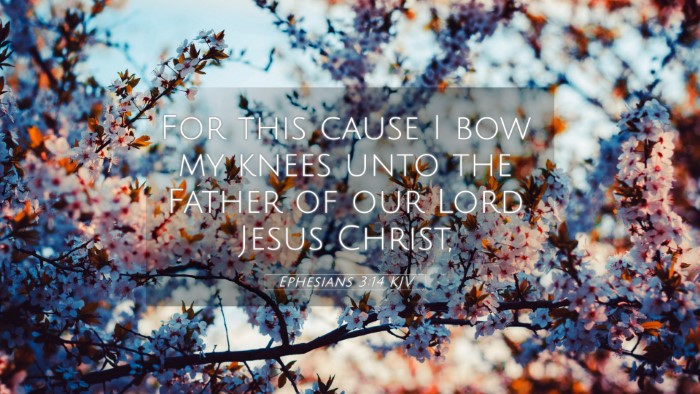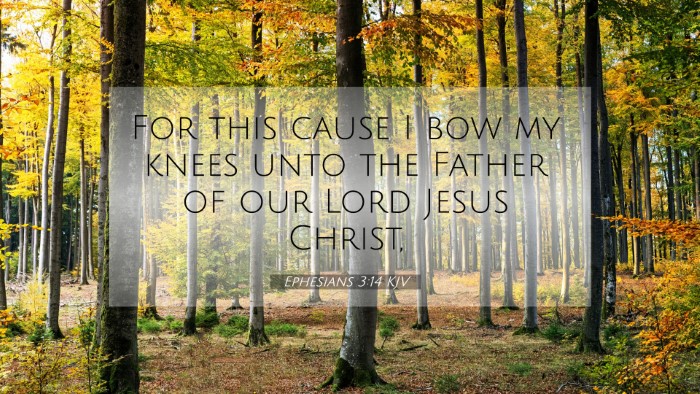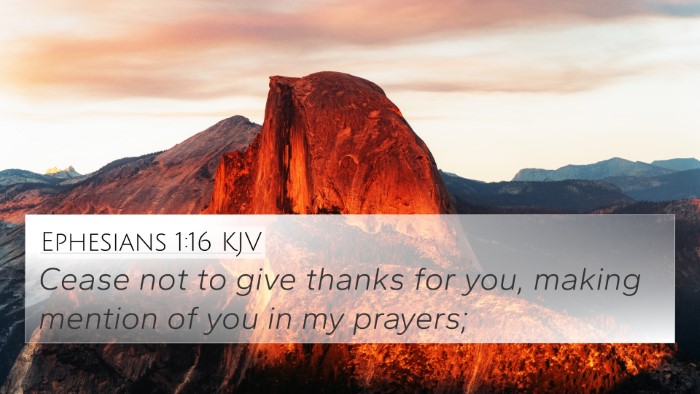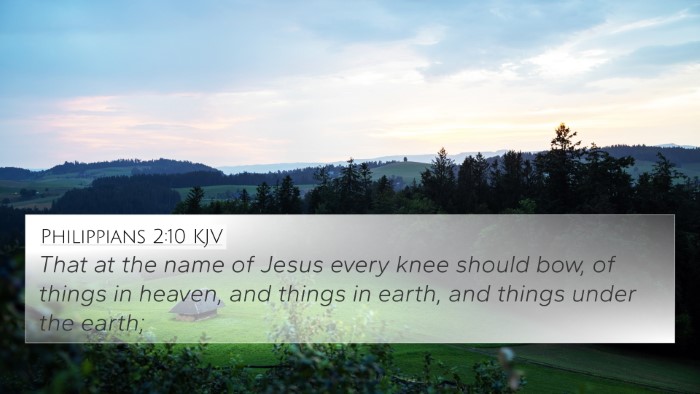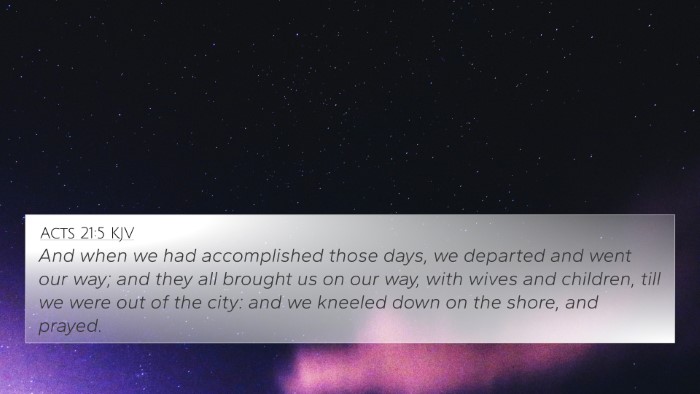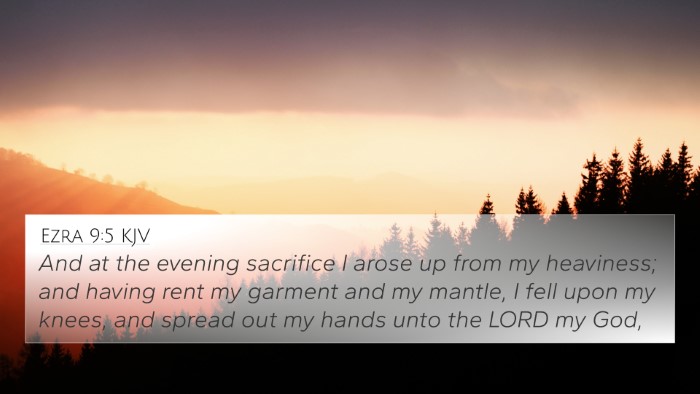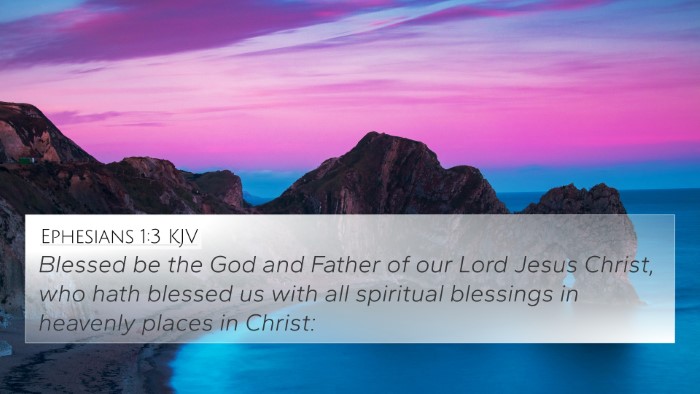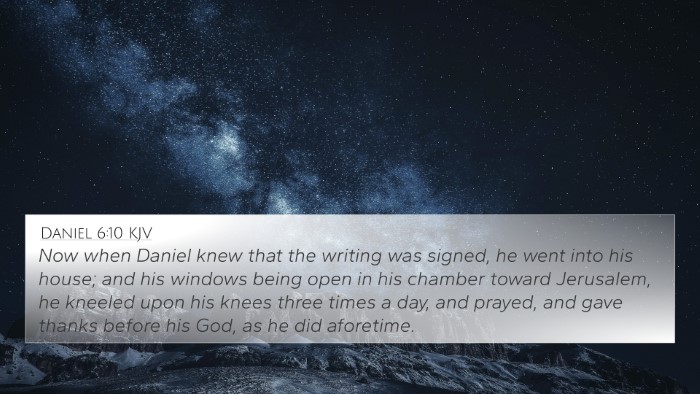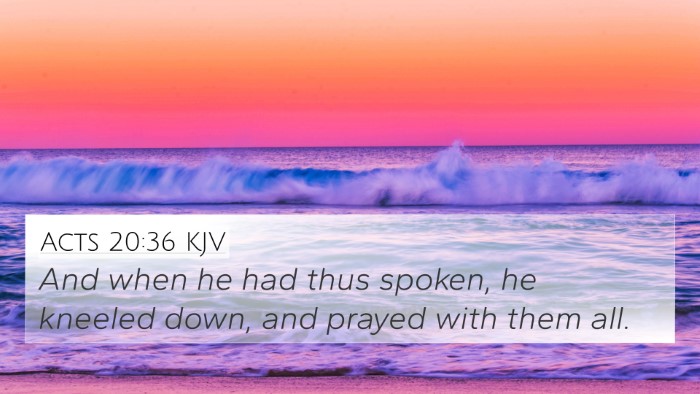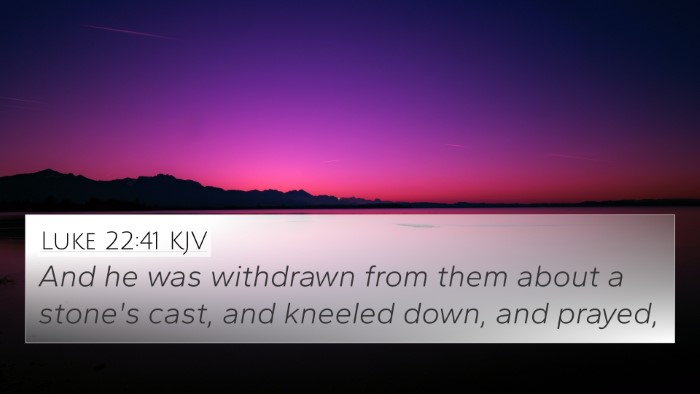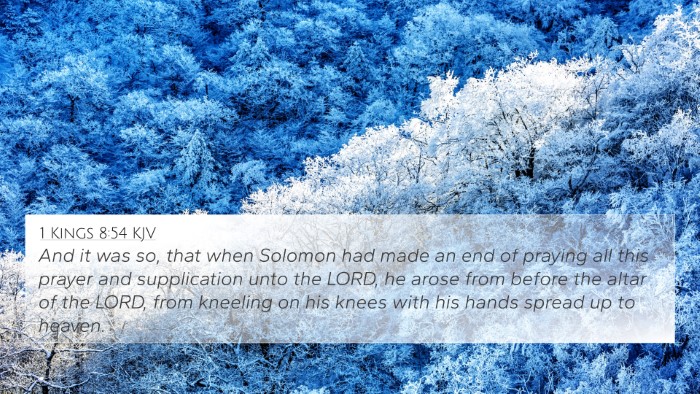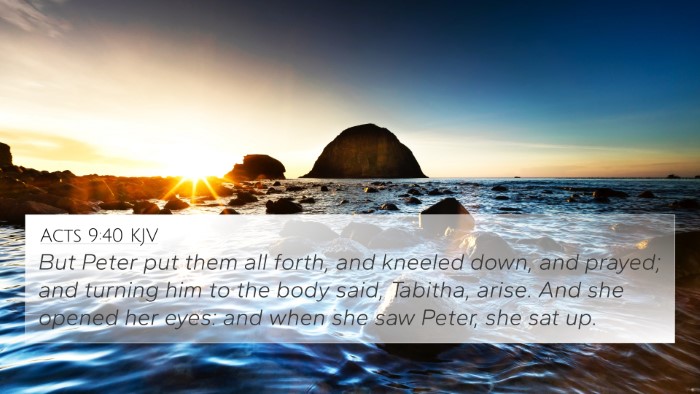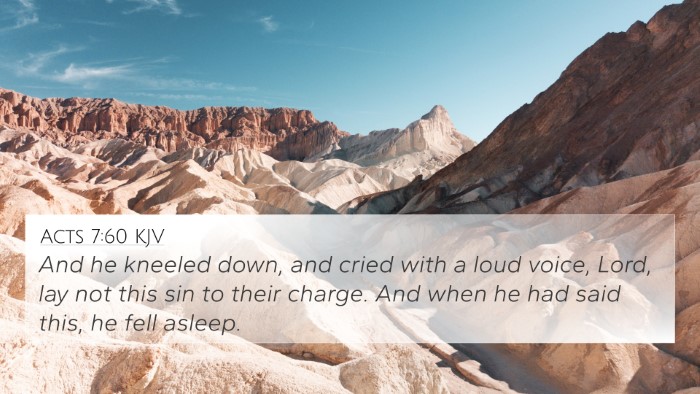Ephesians 3:14 - Meaning and Interpretation
Bible Verse: Ephesians 3:14 (KJV) - "For this cause I bow my knees unto the Father of our Lord Jesus Christ."
This verse represents a profound moment of prayer and humility in the Apostle Paul's epistle to the Ephesians. In this passage, Paul emphasizes his posture of submission and reverence before God the Father, which is vital in the context of his spiritual mission and intercession for the church. Below, we'll explore the verse's meaning and connections to other biblical texts.
Summary of Meaning
The verse begins with "For this cause," indicating a purpose behind Paul's actions. This phrase links back to the preceding chapters, wherein Paul discusses the mysteries of the Gospel, the unity of believers, and the role of grace in salvation.
Paul's action of bowing his knees signifies deep respect and reverence in approaching God. This physical posture often symbolizes earnest prayer and commitment to seeking God’s will. The mention of "the Father of our Lord Jesus Christ" underscores the relationship between the Persons of the Trinity and the important role of Jesus as the mediator between God and humanity.
Commentary Insights
- Matthew Henry: Henry emphasizes that the Apostle's posture of prayer is not merely a tradition but a heartfelt acknowledgement of God’s authority. It is an expression of dependence and faith, serving as a model for believers as they approach God in prayer.
- Albert Barnes: Barnes highlights the significance of calling God "Father," which illustrates the personal relationship believers have with God. He also notes that Paul’s knee-bowing is indicative of humility, recognizing God's greatness over his own limitations.
- Adam Clarke: Clarke elaborates on the concept of kneeling, suggesting it signifies submission, reverence, and earnestness in prayer. He also connects this to Old Testament practices where kneeling before God was a common act of worship and supplication.
Cross-References
Understanding Ephesians 3:14 can be enhanced through various cross-references that connect this passage to other scriptural truths:
- Philippians 2:10-11: "That at the name of Jesus every knee should bow..." - This verse aligns with the act of bowing in reverence to God, affirming the authority of Christ.
- Hebrews 4:16: "Let us therefore come boldly unto the throne of grace..." - Encourages believers to approach God confidently, similar to Paul's confidence in prayer.
- 1 Thessalonians 3:13: "To the end he may stablish your hearts unblameable in holiness..." - Illustrates the purpose of prayer in helping believers stand firm in their faith.
- Galatians 4:6: "And because ye are sons, God hath sent forth the Spirit of his Son..." - Shows the intimate relationship believers have with God as their Father.
- Romans 8:15: "For ye have not received the spirit of bondage again to fear; but ye have received the Spirit of adoption..." - Affirms the familial relationship between God and believers.
- Colossians 1:17: "And he is before all things, and by him all things consist." - Recognizes the preeminence of Christ, reflecting the significance of His role before the Father.
- John 14:6: "Jesus saith unto him, I am the way, the truth, and the life..." - Helps contextualize the relationship of Jesus to God the Father and underscores Jesus as the mediator in prayer.
Thematic Connections
This verse opens up possibilities for deeper understanding through thematic bible verse connections. Here are key themes related to Ephesians 3:14:
- Prayer and Humility: As seen in 1 Peter 5:6, which encourages believers to humble themselves under God's mighty hand.
- Divine Fatherhood: Explores the familial relationship believers have with God, as seen in Matthew 6:9, where Jesus teaches the Lord’s Prayer.
- The Unity of the Church: Linked to the larger context of Ephesians where Paul discusses the church's unity in Christ (Ephesians 4:3).
Conclusion
Ephesians 3:14 serves as a pivotal expression of Paul's heartfelt prayer life and connection with God. The act of bowing symbolizes a deeper understanding of both humility and reliance on God. As seen through commentary insights and scriptural cross-referencing, this verse resonates with core Christian tenets of faith, prayer, and the relational dynamics between the believer and God.
This exploration encourages readers to delve into a richer study of the scriptures, utilizing tools for cross-referencing and integrating related Biblical themes for comprehensive understanding of God's design and purpose in prayer.

